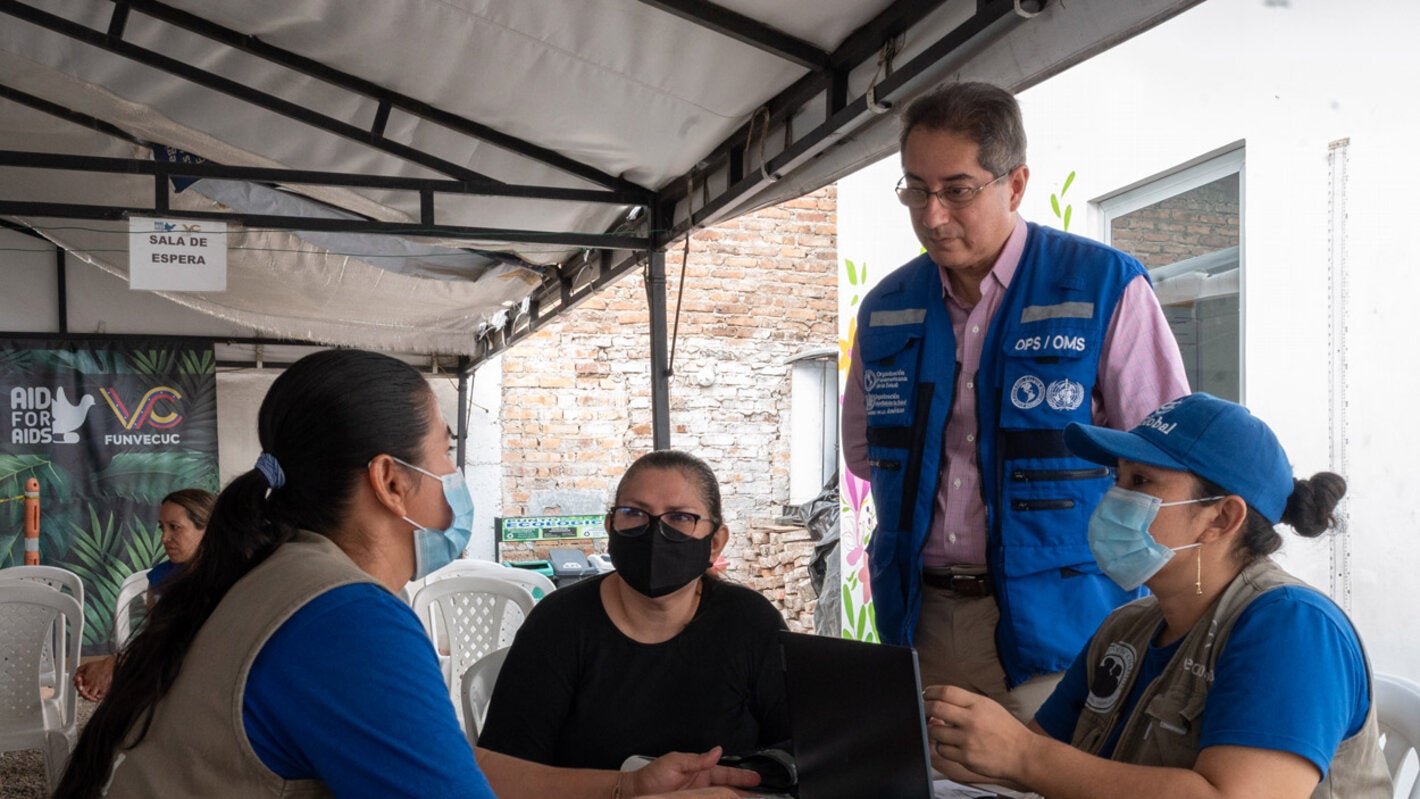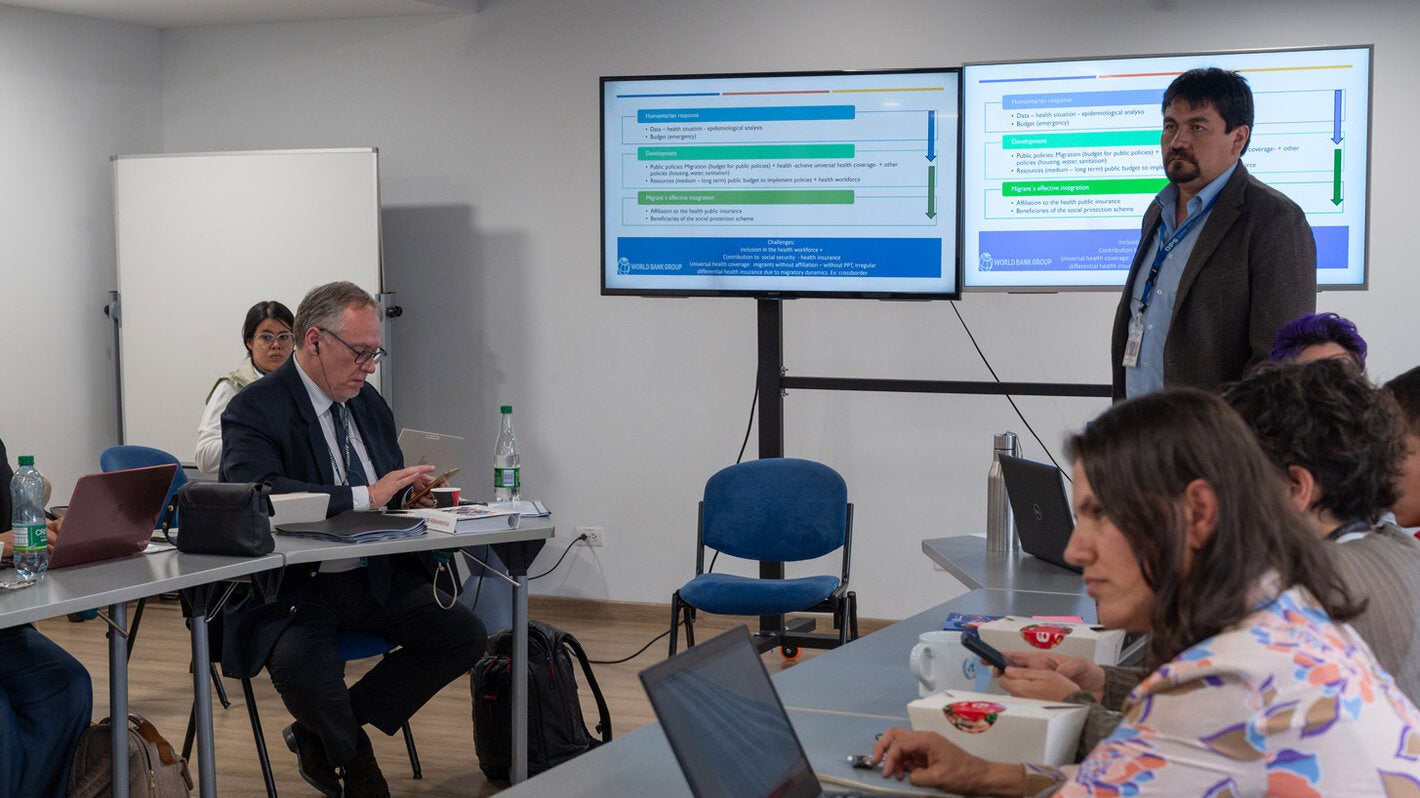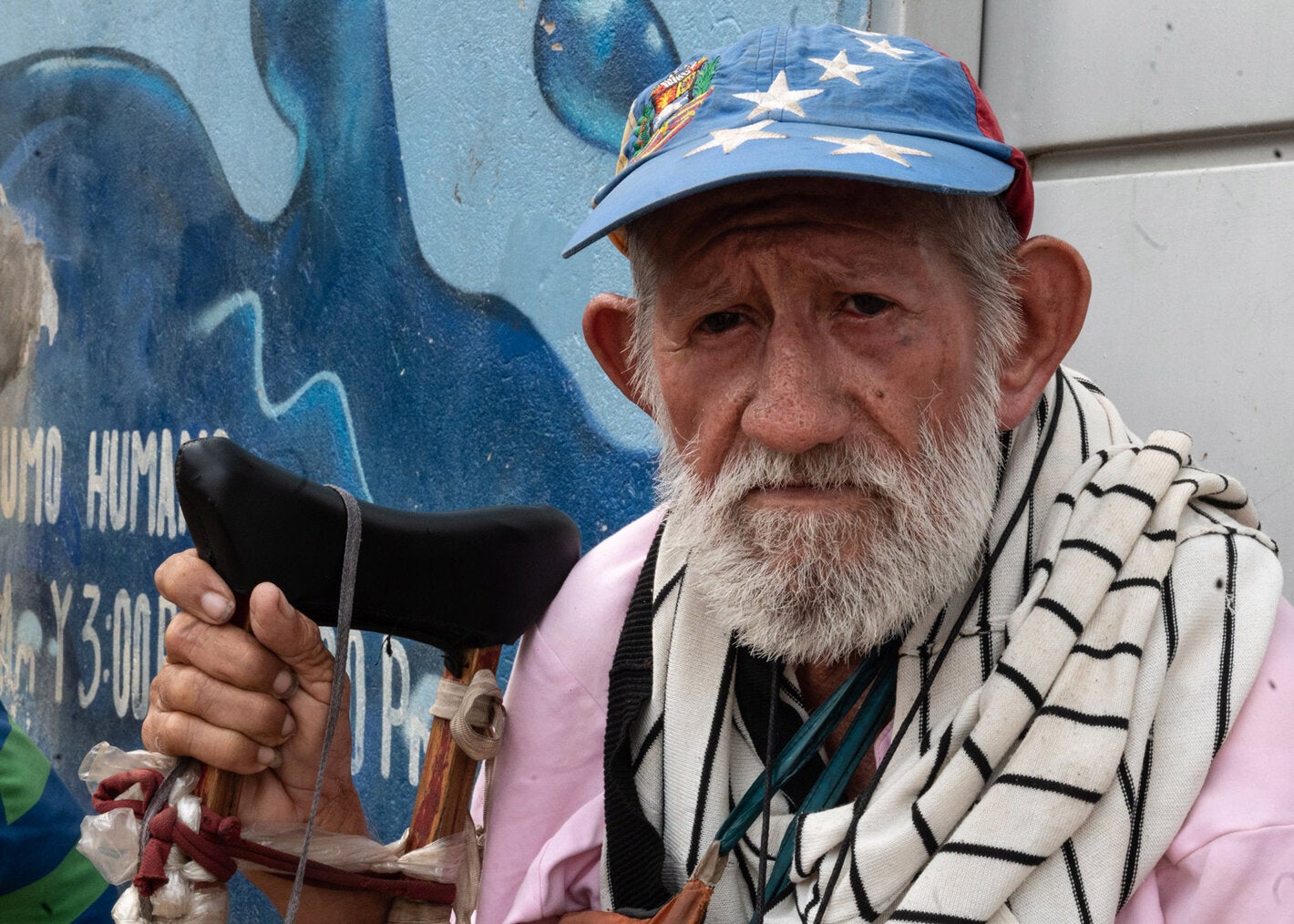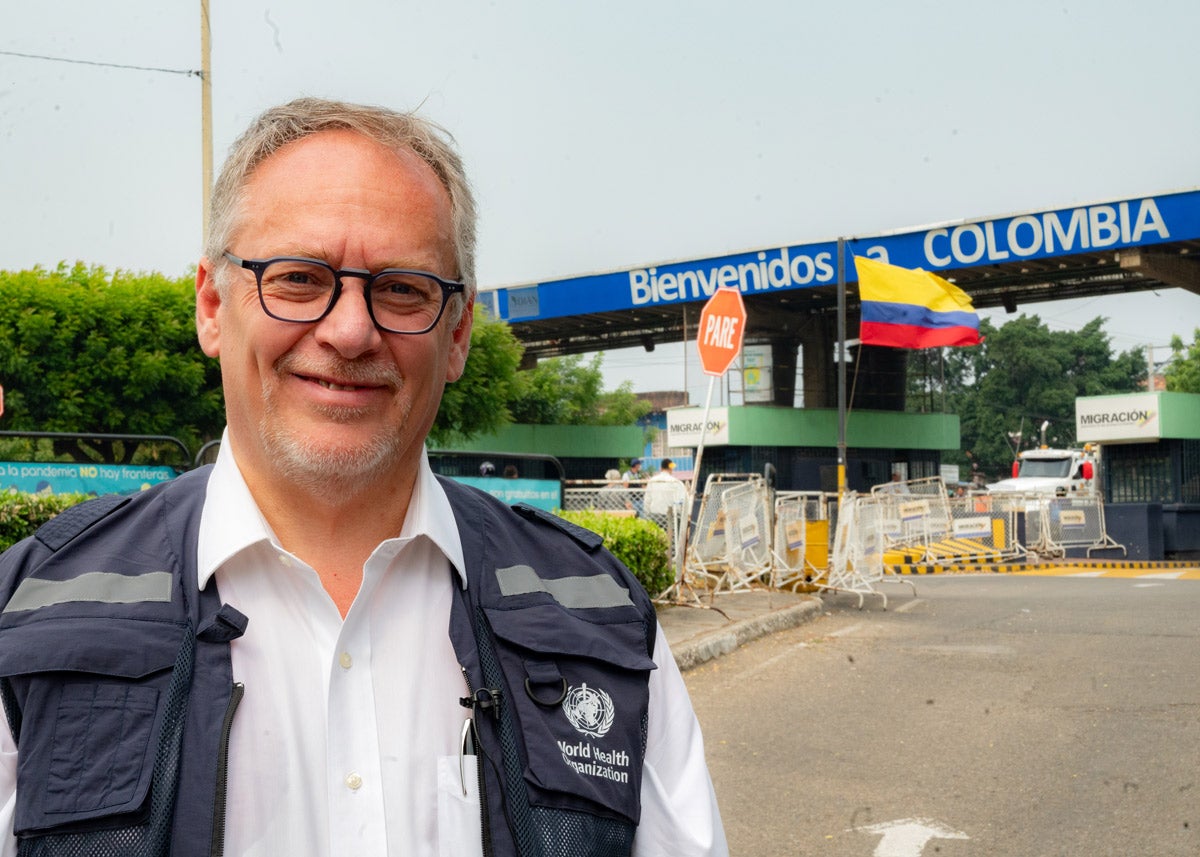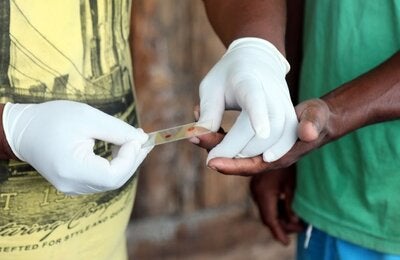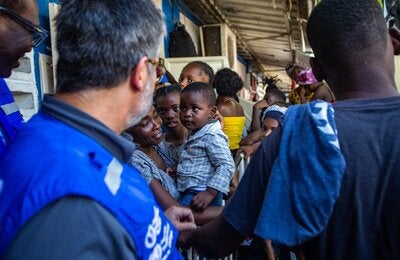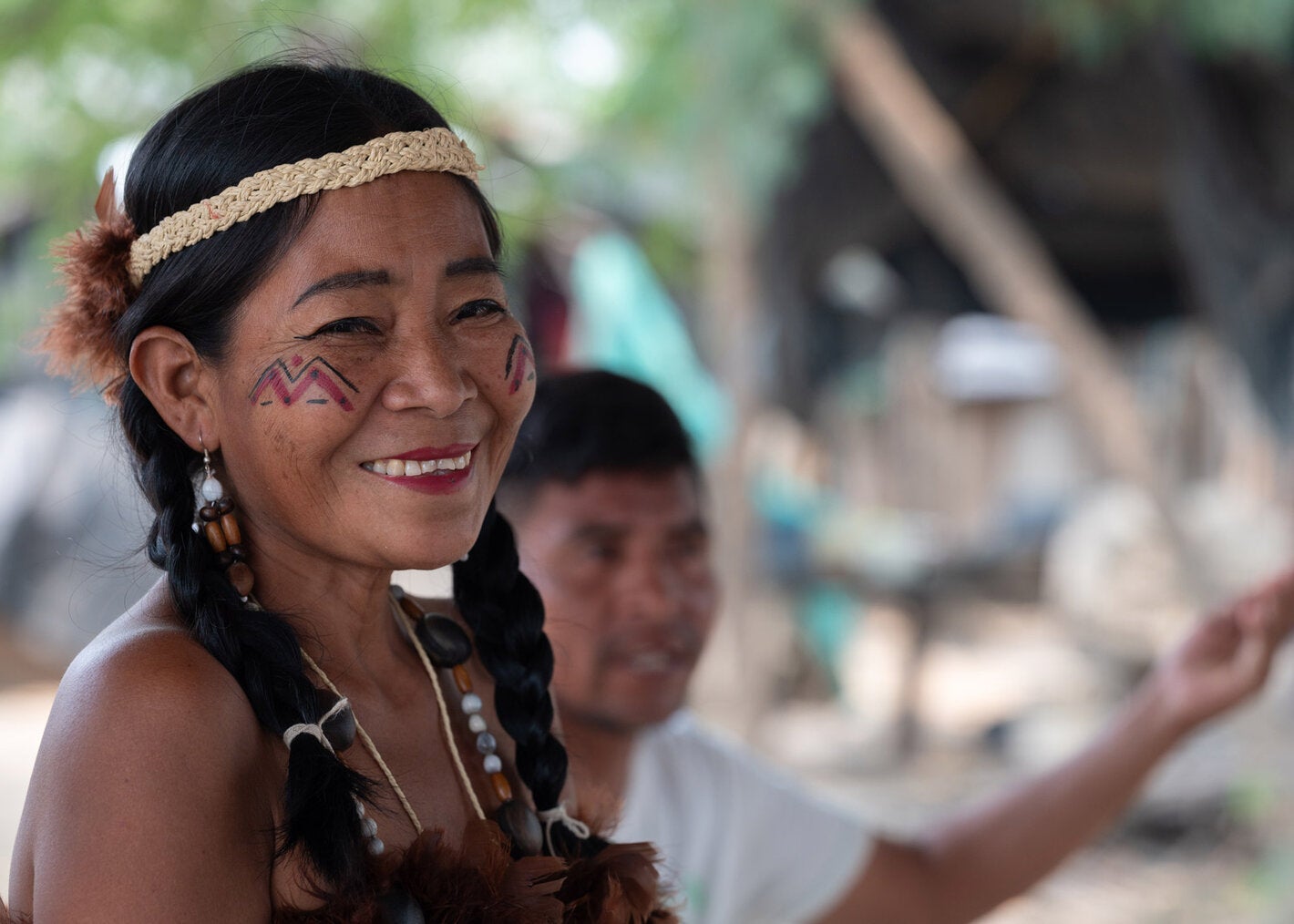
Bogota, April 5th, 2024. "This bridge has witnessed the passage of millions of migrants and refugees", said Dr. Santino Severoni, Director of the Department of Health and Migration at the World Health Organization. His words resonate as all type of vehicles cross the Simón Bolívar Bridge, a key border point between Colombia and Venezuela. In fact, over 80% of more than 7 million Venezuelans who have left their country in the last decade, have left their country through this bridge and other border points in the Norte de Santander department in Colombia.
Colombia hosts the largest number of refugees and migrants from Venezuela in the Americas, with nearly 2.8 million people settled long-term. This includes over 4.9 million Venezuelans who make daily "pendular" crossings into Colombia, with one-third seeking healthcare services. Additionally, in 2023, over 520,000 migrants from various regions crossed the Darien Gap on the Colombia-Panama border, with an additional 73,167 registered in the first two months of 2024, according to Panamanian authorities. These migrants come from South America, the Caribbean, Asia, Africa, and Europe.
Colombia prioritizes the human rights of its migrant population through various public policy instruments. This includes the Temporary Protection Statute for Venezuelans, which has benefited over 2.2 million people who are now regularized or in the process of regularization. "In the health sector -said Deputy Minister of Public Health Jaime Urrego- we've established mechanisms for regularized migrants to join the General Social Security System. Additionally, those with pending immigration status still have guaranteed access to emergency medical care".
While progress has been made with over 1.2 million regularized migrants now affiliated with the General Social Security System, there is still a gap. Approximately 1.1 million regularized individuals haven't entered the system yet. This challenge is further compounded by the lack of access for migrants in irregular situations or those from other nationalities.
To address the complex migration situation, the Colombian government collaborates with 84 national and international organizations. These organizations work together within the "Health Cluster" and 21 committees for territorial health, led by the Ministry of Health and Social Protection (MSPS), the Pan American Health Organization (PAHO), and Save the Children. This collaborative effort has ensured access to health services for over 4 million migrants.
According to Dr. Severoni, "The work done in Colombia is extremely positive and serves as an example for many countries. This leadership is why the country was chosen to host the Fifth Global School on Health and Migration". This hybrid event offers a platform to share best practices in migrant healthcare with a global audience. The School attracts around 5,000 participants, and the learning materials are consulted monthly by an estimated 3,000 students accessing the WHO website. Please find here more information about the Fourth edition of the Global School.
However, challenges remain in Colombia. Notably, a crucial shift is needed: transitioning from crisis response to integrating humanitarian efforts with long-term development plans. This is especially necessary in border regions. These areas face significant challenges due to several factors. They are geographically dispersed, meaning resources are overstretched. Additionally, they have limited institutional capacity, meaning there may be a lack of infrastructure and trained personnel. Community resources and cooperation are also strained. These challenges are further compounded by ongoing emergencies such as armed conflict, widespread violence, natural disasters, and the potential for epidemics and pandemics.
To address the specific health needs arising from migration and other emergencies at the local level, PAHO/WHO Colombia and the MSPS are promoting the establishment of Territorial Health Committees. These committees act as forums for dialogue, coordination, and collaboration among various stakeholders. Local authorities, cooperating partners, academic institutions, donors, and community representatives all have a seat at the table. This collaborative approach ensures a comprehensive response to identified gaps and voids in health services, particularly in emergencies involving migration.
Dr. Celso Bambaren, Head of the Country Preparedness Unit at PAHO Health Emergencies Department, emphasizes the specific health challenges faced by migrant populations. "Their transit between countries and the potential weakness of health systems leave them more exposed to diseases", he explains. "Guaranteeing access to essential services is crucial. This includes emergency care, nutritional support, vaccinations, treatment for endemic diseases they may encounter, as well as mental health care and psychosocial support to address the stress of migration".
Colombia's hospital network has risen to this challenge. They have adapted their services to cater to the specific needs of priority migrant populations, including pregnant women, newborns, children under five, elderly individuals with chronic diseases, and indigenous communities. Furthermore, health professionals are leading a strengthened community outreach program. This program promotes self-care practices, disease prevention measures, and respect for the cultural contexts of each migrant community.
In neighborhoods like La Fortaleza, Cúcuta (Norte de Santander), a crucial collaboration is taking place. These communities host migrant, refugee, and returning Colombian populations. To safeguard public health, community surveillance networks have been formed. These networks receive training from the MSPS, PAHO, and other partners. Their role goes beyond prevention. These networks actively identify significant public health events and trigger institutional responses. This ensures timely and quality care reaches those in need.

